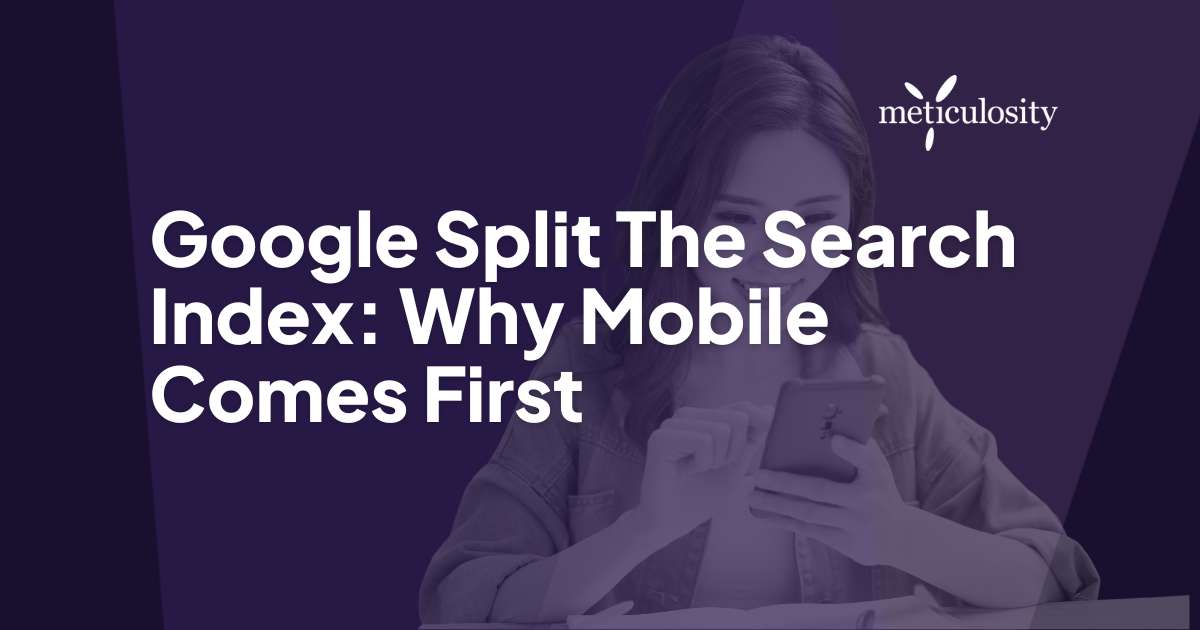The reason for the search index split? In today's digital environment, more users are accessing websites from various mobile devices (such as smartphones and tablets) than ever before.
What is Mobile First Indexing?
Google's mobile-first indexing means they will use the mobile version of your website as the basis of their ranking and indexing. This is a fundamental shift as Google historically used a website's desktop version for its ranking baseline and relevance to the search query.
The Google Mobile First Index
The split is Google's effort to become more user-friendly. There's nothing more frustrating than clicking on a website only to find out it's displaying incorrectly or completely inaccessible from your phone or tablet. Google heard these complaints and made mobile searching their priority.
Currently, 4% of people use laptops/desktops exclusively for searching, compared to 27% of people who use smartphones only. That's a huge difference that really demands mobile be at the forefront. Streamlining the search process model and tailoring result indexes allows Google to more accurately return search results and better serve its consumers.
Better Mobile Accessibility
Google evaluates certain standards (such as how easy it is to tap on links within a mobile website and what size text the website uses) to determine how accessible the website is from a mobile device.
Speed is also a chief concern, so Google introduced faster-loading pages called Accelerated Mobile Pages (AMP). According to Google, these pages can increase load times by 15-85%, which is a big deal since they've found about 53% of users will abandon a page if it doesn't load in 3 seconds. Every. Second. Counts.
Currently, if you search on a mobile device, you'll get different results than someone searching for the same thing on a desktop. With the focus more on accommodating mobile users, it's worth noting that Google's mobile search index is slightly more up-to-date than its desktop search index.
/Imported_Blog_Media/fig-07-11-2016_16-19-54-500x272-3.jpg?width=500&height=272&name=fig-07-11-2016_16-19-54-500x272-3.jpg)
The Advantage of Having Two Indexes
There are several advantages of separate indexes:
- Search engines can tailor content to mobile users
- The ability to deliver the latest news stories to mobile users in a more timely manner
- Less frustration over search results for both mobile and desktop users
- Improves ability to crawl and index websites accurately
- Improves site listings and rankings
- Better website load times, especially for mobile users
Over to you
Google understands that today's internet users have several options when selecting a search engine. In an effort to remain relevant in a fiercely competitive digital market, Google is taking strides to be sensitive to search engine users' changing needs.
By responding to the changes in how most people use the internet, search for information, and make purchases, Google is taking proactive measures to remain the search engine of choice. Let's face it: Google really does it best!







